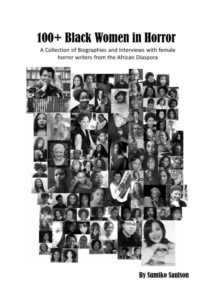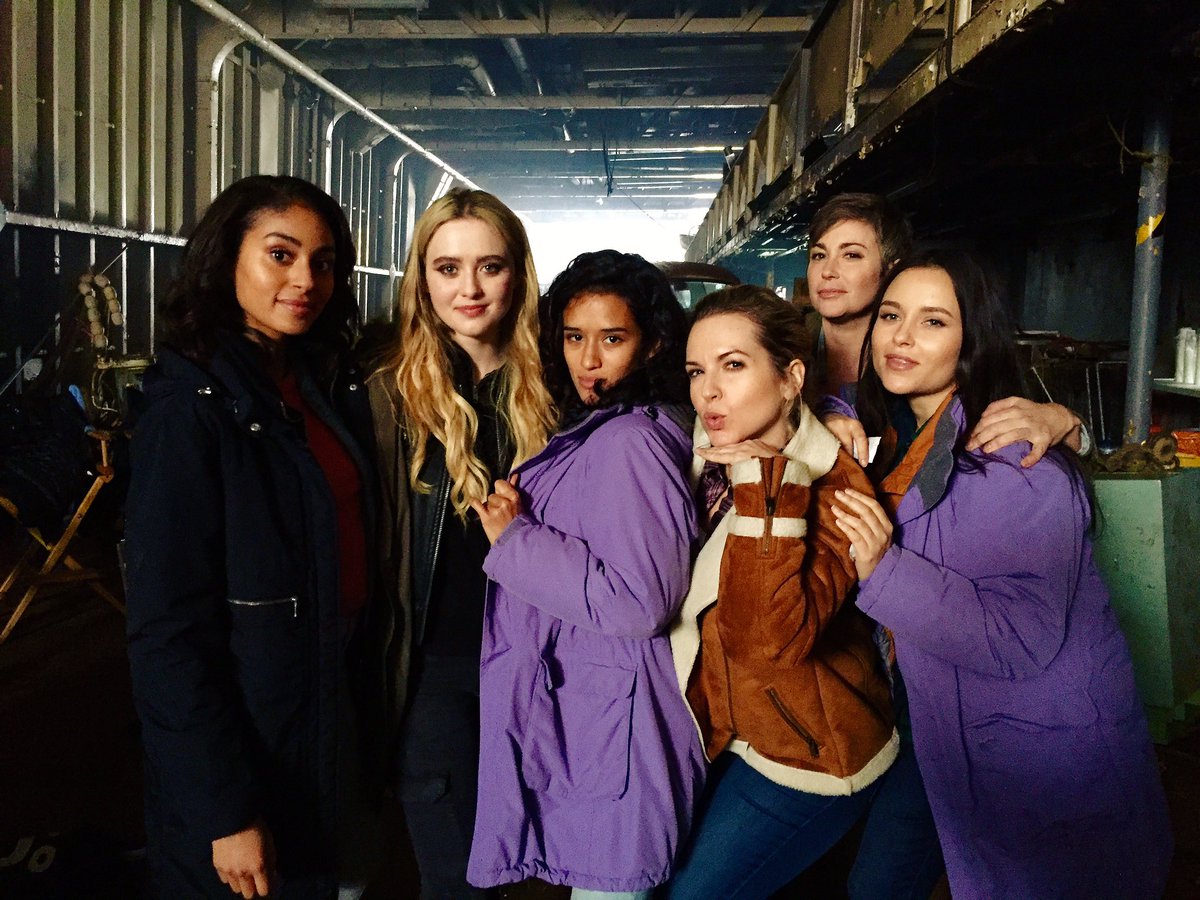100+ Black Women in Horror Fiction by Sumiko Saulson
Iconoclast Productions, 2018
ISBN: 9781387587469
Available at Lulu.com in hardcover, paperback, and premium paperback, and on Amazon as hardcover, paperback, and Kindle edition.
February is both Women in Horror Month and Black History Month, and in 2014, author and blogger Sumiko Saulson compiled interviews and biographical sketches of black women writers who have written in the horror genre, composed for and shared on her blog, into a book titled 60 Black Women in Horror Fiction. Saulson published 100+ Black Women in Horror Fiction as an expanded edition in 2018. It includes additional, very brief entries on black women horror writers that Saulson uncovered after 2014. Entries are listed in alphabetical order and each is accompanied by website addresses for the author. Following the entries are interviews of 17 black women authors profiled in the book. Poet Linda Addison, Africanfuturist Nnedi Okorafor, and horror writers Lori Titus and Eden Royce, among others, are included in the interviews section of the book, and David Watson shares a short essay on L.A. Banks and Octavia Butler.
The book is clearly a labor of love, and even a list of black women writers of horror is needed, but unfortunately, the majority of entries do not include typical biographical information like date and place of birth, family members, and background information. They do include a list of the author’s publications, specifically those related to the horror genre. I examined the Kindle edition, and the website links do work, but not all of them are current: a few of them are no longer in existence (unfortunately, one of them is a resource Saulson cited as using in researching and writing the book: darkgeisha.wordpress.com). It is clear that this is an expanded version– that is, new entries have been added– and not an updated one, after reading the introduction, but this is really a starting point for exploring these women’s work rather than a detailed biographical reference. There are unfortunately a number of typos and punctuation errors in the book, but they don’t interfere with the ability to understand and use what is still a unique book for reader’s advisory and for readers wanting to diversify their experience of reading horror fiction.
Saulson’s original work can also be found on her blog at sumikosaulson.com, and I highly encourage you to visit and explore her resources. There are more black women writers of horror than there were when Saulson started this project on her blog in 2013, but their writing, and recognition for it, is a part of the horror community that needs to continue to grow.
Saulson has also edited a companion volume of original short fiction by 18 black women writers of horror whose profiles are included in this book, which also came out in February of 2018, called Black Magic Women: Terrifying Tales by Scary Sisters. Stay tuned for a review later this month!







Follow Us!